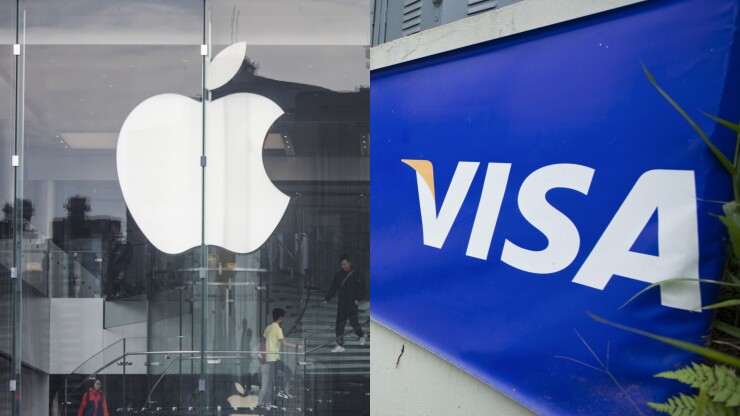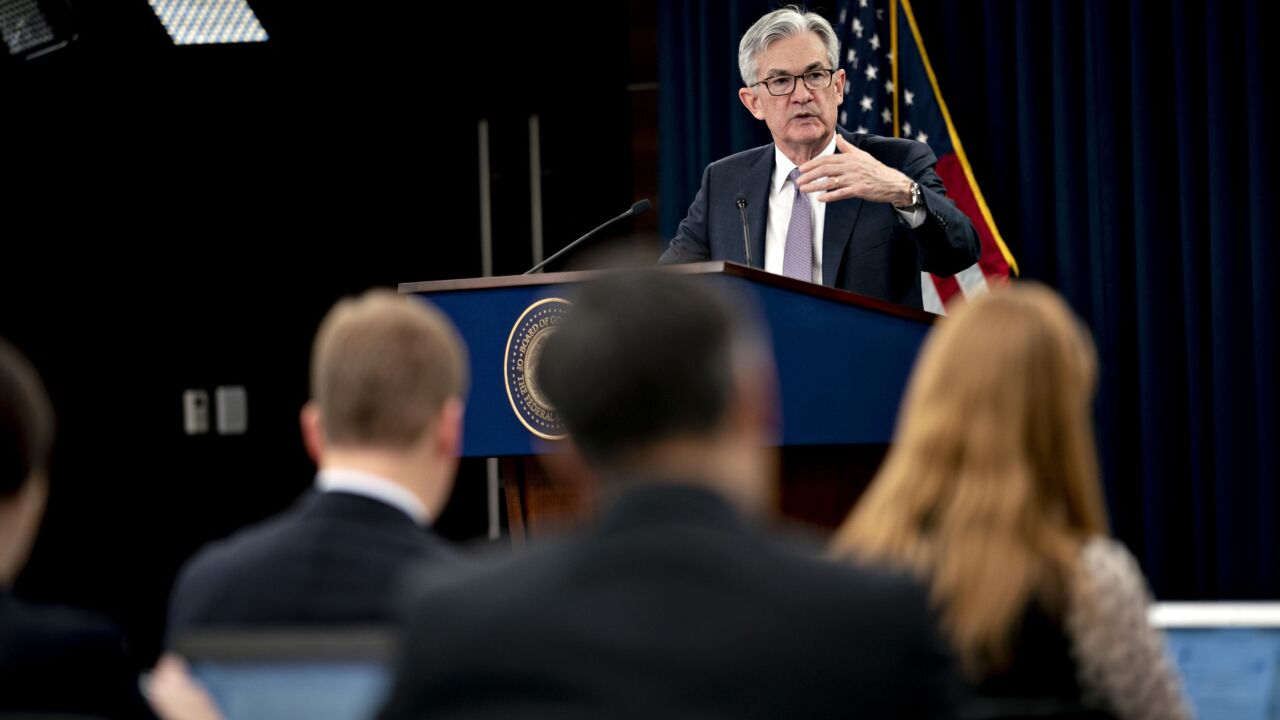Banks have long griped about the fees Apple assesses for inclusion in its mobile wallet. Visa is reportedly working on a way to ease that burden, but Apple is not known for its willingness to negotiate — and in extreme cases, has chosen to burn bridges rather than give ground.
The card network is mulling a plan that would allow banks to keep a greater share of the fees users pay for subscription services, according to
"Apple has more control and power on its apps platform and has therefore been more aggressive there extracting payment fees," according to Eric Grover, a principal at Intrepid Ventures.
"With subscription and recurring billing however, once they’re set up, the payment flow is pretty automatic," Grover said. "If Visa wants to place a few restrictions on interchange sharing, that would be a sensible place to start."
While Visa benefits if Apple’s digital wallet and platform facilitate more Visa transactions, it is decidedly not in the world’s largest retail payment network’s interest that Apple share gets too big, according to Grover.

Visa declined to comment on The Wall Street Journal report, which suggests that once the initial transaction is verified via Apple Pay and banks pay a one-time fee, Visa would issue a different token for each recurring payment that would flow directly from the bank to the merchant. Apple did not respond to a query from American Banker.
Apple faces pressure on its payment fees on multiple fronts. The European Union is prepariing to file an antitrust charge over how Apple guards access to the iPhone's Near Field Communication chip — the component that enables contactless payments — according to a Wednesday report by
It's possible that the card issuers are overplaying their hand, said Steve Mott, a principal with the payments consulting firm BetterBuyDesign.
When Apple Pay launched in 2014, it cemented a standard for
“Apple has been very careful about building its model, and it’s worked pretty well for all the parties," Mott said. "I’m afraid that because card issuers have benefited from all this while they have not been great about discussing merchant fees [related to credit card interchange], the banks’ complaints about Apple’s fees may fall on deaf ears."
Apple may also be guarded because Visa's issuers are focusing on a type of payment that is poised for growth. Recurring card payment volume is soaring as more products and services adopt subscription models, and many routine household bill payments
The pandemic
“It’s a bold idea for banks to focus on recurring payments, because these are the mother lode of all transactions — they drive card loyalty through persistent active account use, they’re expanding to new merchant categories and the average recurring transaction amount is rising,” said Richard Crone, a principal with Crone Consulting LLC.
Apple has shown a willingness to push back when other companies go against its rules for handling payments. The best-known example is Epic Games, maker of Fortnite, which Apple blocked from its platform for using third-party payment services to avoid Apple's 30% App Store fee. Even after a federal judge ruled that
Visa has been a target of similarly aggressive negotiating tactics, such as Walmart's 2016 decision to
In addition to the lawsuit with Epic,
While there is clear value to being the top-of-wallet choice for any payments initiated through Apple devices via Apple Pay, bankers argue that there is less value for recurring payments, where the charges are made automatically and Apple plays little role after the initial enrollment.
Banks may have already conceded the fight long ago. Before Apple Pay launched in October 2014, banks and card networks signed agreements with Apple that are still in place and not subject to negotiation, Crone said.
“Visa would also have a hard time changing its established policies for routing Apple Pay’s tokenized transactions — it would be very complex,” he said.





